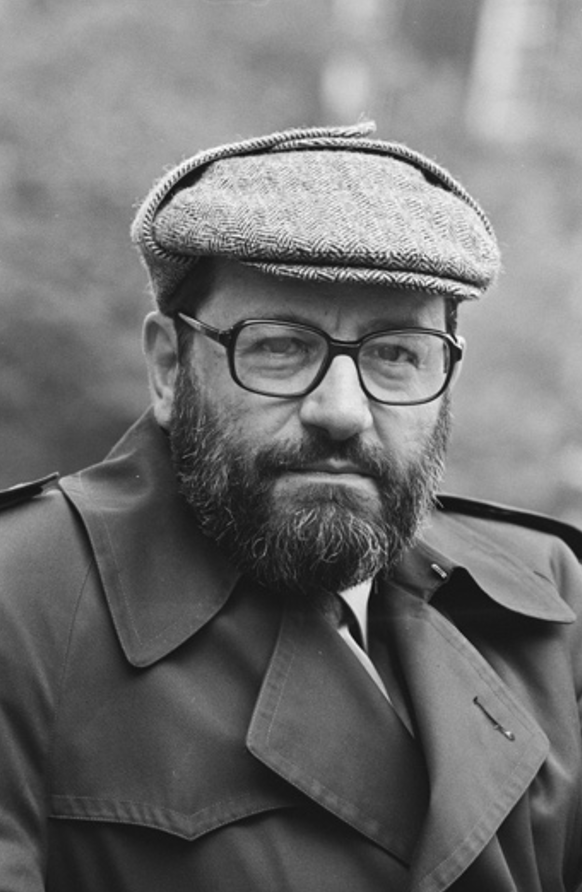1932 / 2016
Piedmont, Italy ; Milan, Italy
Umberto Eco was born in Alessandria (Piedmont), Italy on January 5th, 1932.
As a young teenager, he received a Salesian education and then went on to complete a degree in Philosophy at the University of Turin, where he graduated in 1954.
During his long life, he has produced many materials on the topics of medieval aesthetics and philosophy, semiotics and popular culture, visual communication and semiological guerrilla warfare and an abundance of novels and non-fiction books as well.
As an academic he studied philosophy, semiotics, and culture, all while theorizing and writing fiction pieces which stunned critics. He continues to be praised today for his work allowing for such abstruse academic subjects be accessible and engaging.
From 1969 to 1971, Umberto Eco was a visiting Professor at New York University. He then came back to the US from 1977 to 1978, as a visiting professor first at Yale and then Columbia. He would return to Yale in 1980 and to Columbia in 1984.
He became internationally famous in 1980, following the publication of his most widely known historical novel, The Name of the Rose, which sold millions of copies and was translated into dozens of languages. The book was later made into a movie starring Sean Connery and Christian Slater, and, more recently, into a TV mini-series by Italian-American director John Turturro.
Throughout his life, he won various honors and awards, in addition to nine honorary doctorate degrees by various institutions. In February 2016, Eco died from pancreaic cancer in Milan.
Related Vectors
Chelsea
Literary Journal
Sources
Adam Chandler, "Remembering Umberto Eco," The Atlantic, February 20, 2016.
Beardsworth, Sarah G and Randall E. Auxier (eds). The Philosophy of Umberto Eco. Chicago: Open Court, 2017.
Chris Wallace Photographed by Robbie Fimmano November 2, and Chris Wallace. “Umberto Eco.” Interview Magazine, November 3, 2015. https://www.interviewmagazine.com/culture/umberto-eco.
“Umberto Eco Taught the World How to Think about Conspiracies and Fascism.” VICE. https://www.vice.com/en/article/zng9ne/umberto-eco-taught-the-world-how-to-think-about-conspiracies-and-fascism.
“Umberto Eco.” Wikipedia. Wikimedia Foundation, November 21, 2021. https://en.wikipedia.org/wiki/Umberto_Eco.



